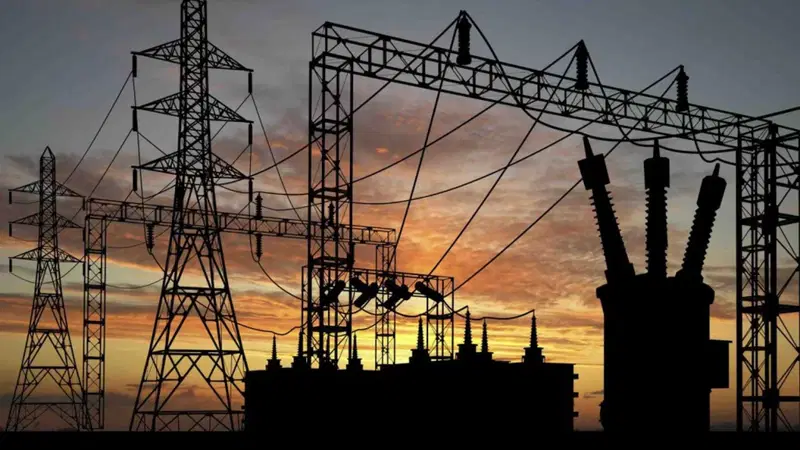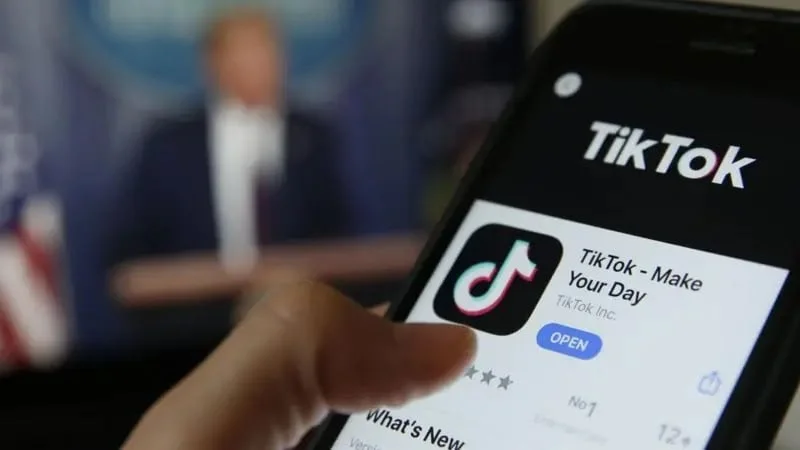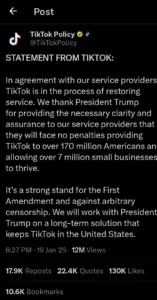Tech
Blackout as national grid collapses 11th time in 2024
Published
1 month agoon
By
Ekwutos Blog
By Obas Esiedesa, Abuja
Nigeria’s national power grid managed by the Transmission Company of Nigeria, TCN, collapsed yesterday, the 11th time in 2024, leaving the country in complete blackout.
Data from the National System Operator, NSO, showed that as of 2pm yesterday none of Nigeria’s 26 power plants was on the grid.
Prior to that time, checks at about 1pm showed that 15 plants were on the grid generating a combined 3,087MW, with Egbin generating 666MW, Jebba Hydro at 427MW and Azura-Edo IPP at 379MW as top four power plants.
The latest collapse came despite a directive by the Minister of Power, Chief Adebayo Adelabu, for full implementation of the recommendations made by the ministry’s committee set up to resolve the challenges faced by the grid.
After the 10th collapse, the Minister promised that short, medium and long term measures would be taken to curb incessant electricity grid collapses.
Meanwhile, electricity distribution companies, DiscCos, confirmed the incident on their social media handles while assuring consumers that they were working with stakeholders to restore the grid.
Abuja DisCo in a post on its X (twitter) stated: “Dear Valued Customers, we wish to inform you that a system disturbance occurred on the national grid at 1:32pm today causing power outage across our franchise areas. While gradual restoration of power supply has commenced, be assured that we are coordinating closely with relevant stakeholders to restore power fully as soon as the grid is stabilized”.
Eko DisCo in Lagos posted: “Dear valued customer, kindly be informed there was a reported case of system disturbance on 11th December, 2024 at 13:32hrs which has resulted in a loss of power supply across our network. We are currently working with our partners as we hope for speedy restoration of the grid. We will keep you updated as soon as power supply is restored. Kindly bear with us”.
How grid collapse impacts our operations — GenCos
In a note on frequent collapse of the national grid, the Chief Executive, Association of Power Generation Companies (APGC), Dr. Joy Ogaji highlighted the significant mechanical and commercial impacts of grid collapses on generation companies (GenCos).
Related News
Although the full industry-wide impact on GenCos is yet to be quantified, Dr. Ogaji revealed that the Kainji and Jebba hydro plants alone have incurred losses of N21.87 billion due to system instability this year.
“Grid collapse poses a significant threat to Nigeria’s power sector, resulting in frequent disruptions, equipment damage, and substantial revenue losses for GenCos. Technically, grid collapse can cause catastrophic damage to generators, transformers, and other critical infrastructure, leading to prolonged downtime and costly repairs”.
You may like


TINUBU BARRACKS: PRESIDENT BOLA TINUBU SAYS WELFARE OF OFFICERS AND MEN OF THE ARMED FORCES REMAINS PARAMOUNT


Omah Lay Turns Heads with Bold New Style at Paris Fashion Week


‘Time for American people to know TRUTH’: Donald Trump orders declassification of assassination files of John F Kennedy, Martin Luther King


Australian Open: Sabalenka beats Badosa to reach third straight Australian Open final


Nigerian woman cries out after allegedly being brut@lised by her husband for ‘wearing singlet to take their children to school’


Niger Explosion: Governance must prioritize human lives through proactive policies – Peter Obi
Tech
Globacom CEO Ahmad Farroukh resigns after one month amid governance challenges
Published
2 days agoon
January 22, 2025By
Ekwutos Blog
Globacom CEO Ahmad Farroukh resigns after one month amid governance challenges
Frank Eleanya (Ekwutosblog)
Jan 21, 2025
Ahmad Farroukh, who was appointed CEO of Nigerian telecom giant Globacom in October 2024, resigned after just one month in the role, multiple sources close to the matter confirmed. While Globacom has not issued an official statement or communicated the resignation internally, several industry insiders suggest the decision was linked to significant challenges within the company’s organisational structure.
A mid-level manager at Globacom, speaking on the condition of anonymity, speculated Farroukh’s departure was tied to problems with the organisational setup. A top-level executive at the Nigerian Communications Commission (NCC) who asked not to be named confirmed Farroukh’s exit but declined to share specifics.
Globacom did not respond to multiple requests for comments.
Farroukh’s abrupt resignation highlights significant internal challenges at the company, which has long been criticised for its centralised decision-making process. According to a former Globacom executive, the company’s founder, Mike Adenuga, is key to most decisions within the company. Adenuga has managed the telecom giant alongside his other business interests, including oil and gas, financial services, and real estate, with minimal structural separation between his other ventures and Globacom’s operations.
This approach has historically worked for the company but may have presented obstacles for Farroukh, whose experience at more structured organizations like MTN and Airtel might have led him to expect a different level of operational autonomy.
Farroukh’s departure also comes when Globacom is facing heightened regulatory scrutiny. In late 2024, the NCC’s sector audit revealed that over 40 million subscribers were not properly registered with their National Identification Numbers (NIN), violating government regulations. This led to a significant loss of market share, with Globacom’s share of the Nigerian mobile market shrinking by approximately 60%, leaving it with just 12%.
Globacom has also faced ongoing cybersecurity issues, including a high-profile hack in 2023 that exposed the personal data of millions of its subscribers. These issues may have created an environment where Farroukh’s leadership efforts could not make a meaningful impact quickly.
“A CEO leaving in one month is unprecedented in the industry. The NCC can investigate the reason for his exit. The commission can seek an explanation from the CEO, who is not obligated to respond, or from the company because this is about corporate governance, which the NCC Act covers,” said Ayoola Oke, a former Special Adviser to the former Executive Vice-Chairman of NCC, Ernest Ndukwe.
Globacom’s leadership void following Farroukh’s departure will raise questions about the company’s ability to navigate its ongoing internal challenges and regain its competitive edge. Without significant structural changes, it is unclear how Globacom can address the organizational weaknesses that led to Farroukh’s exit.

TikTok, the wildly popular Chinese-owned app, is resuming operations for its 170 million American users after President-elect Donald Trump announced he would extend the app’s stay in the US.
The platform had gone dark on Sunday, following concerns over potential data access by Chinese officials.
In a statement, TikTok thanked Trump for his clarity and pledged to work on a “long-term solution” to remain in the United States. Trump, posting on Truth Social, vowed to issue an executive order on Monday to delay prohibitive measures and secure a deal to safeguard national security.
This comes after the Supreme Court upheld a law requiring TikTok’s parent company, ByteDance, to sell its US operations.
Previously supporting a ban, Trump has since praised TikTok’s influence, especially in engaging younger voters during his campaign.
SEE SCREENSHOT:

Tech
In US, teleworkers don’t want to turn back
Published
5 days agoon
January 19, 2025By
Ekwutos Blog
For Curtis Sparrer, a work-from-home evangelist, an office is nothing less than a “corporate jail.”
Five years after the Covid-19 pandemic sent workers scrambling for home, laptops under their arm, Sparrer methodically challenges the arguments made by corporate America as it pushes for a full-time return to office.
The issue has even become increasingly political.
The incoming Trump administration, through the Department of Government Efficiency (DOGE) led by Elon Musk and Vivek Ramaswamy, plans to eliminate all remote work for federal employees.
“When you have a physical office, there is an implicit lack of trust. You need to see people there physically to make sure they’re doing their work,” the PR boss told AFP from his San Francisco apartment, overlooking the city’s iconic rooftops.
In the wake of the work-from-home revolution, hybrid work became the norm in the United States, with few exceptions such as Goldman Sachs and Tesla, which quickly mandated full-time office attendance.
Now, several major companies are abandoning the compromise approach.
Amazon recently required engineers and administrative staff to return five days a week. According to a survey conducted by the Blind professional social network last September, more than 90 percent of employees are unhappy with this decision.
On Reddit, users report having turned down interviews to work for the e-commerce and cloud giant because of the policy.
Some speculate it’s a veiled downsizing strategy, though they believe the company founded by Jeff Bezos risks losing its top talent.
Chewing food
JPMorgan Chase’s March announcement ending telework met similar resistance.
Employees posted so many comments about concerns — from commuting costs to child care — on an internal platform that the bank shut down that section, according to The Wall Street Journal.
JPMorgan CFO Jeremy Barnum addressed the issue during a press call, and acknowledged the risk of losing valuable employees, saying: “We are very much not hoping for attrition as a function of return to office.”
“I’m disappointed that Amazon and others dragged people back to the office when we’ve been making so much progress in making work-from-home a national norm,” Sparrer laments.
When founding Bospar in January 2015, Sparrer deliberately chose not to rent office space, both to save money and to recruit talent beyond San Francisco and New York. Ten years later, he stands by that decision.
Office environments inherently create inequality, he said.
“Someone gets the corner office with windows while another gets a cubicle, creating friction,” he explained.
“There’s also a higher likelihood of sexual harassment, illness spreading, and daily annoyances from office gossip to hearing colleagues chew their food.”
Sparrer particularly emphasized telecommuting’s environmental benefits, noting that most Americans drive to work in gas-guzzling cars.
“The typical office building is a polluting nightmare,” he said. His company’s research suggests that remote workers are more likely to cook at home instead of ordering delivery and to recycle their waste.
‘When, where or how’
According to the “Flex Index” study by IT solutions company Scoop, by the end of 2024, about one-third of US companies required full-time office presence, 38 percent maintained a hybrid approach, and less than 30 percent offered complete employee choice.

DrFirst employee Heather Happe sits at her desk next to her cat Duncan at her home in Frederick, Maryland — she is a 14-year veteran of the company. Photo: Agnes BUN / AFP Source: AFP
Health care software provider DrFirst exemplifies the successful transition to remote work.
The company, which previously maintained three offices in Arizona and Maryland, shifted its 400 employees to permanent telework in 2023 based on employee feedback.
“Over 85 percent of our people reported that working remotely improved their overall well-being, whether mental or physical health, and reduced stress,” said Mathew Carrico, the company’s vice president of human resources.
“Productivity remained high.”
To maintain company culture, DrFirst established online social groups, regular check-ins, and a performance system based on quarterly objectives.
“We don’t dictate when, where, or how people work — that’s where trust comes in,” Carrico explained. “But we maintain accountability through results, just as we would in an office.”
Heather Happe, a 14-year DrFirst veteran, appreciates escaping rush-hour traffic.
“There’s that slippery slope of knowing when to stop working, but you learn to set boundaries,” she said.
“I can spend more time with my son, pets, and plants!”

TINUBU BARRACKS: PRESIDENT BOLA TINUBU SAYS WELFARE OF OFFICERS AND MEN OF THE ARMED FORCES REMAINS PARAMOUNT

Omah Lay Turns Heads with Bold New Style at Paris Fashion Week

‘Time for American people to know TRUTH’: Donald Trump orders declassification of assassination files of John F Kennedy, Martin Luther King
Trending
- Politics11 months ago
Nigerian Senate passes Bill seeking the establishment of the South East Development Commission.

 Business11 months ago
Business11 months agoInflation hits record high of 29.90% on naira weakness

 Politics8 months ago
Politics8 months agoBREAKING: Federal Gov’t Offers To Pay Above N60,000, Reaches Agreement With Labour

 SportsNews11 months ago
SportsNews11 months agoOlympic Qualifiers 2024: CAF Confirms Dates For Super Falcons Vs Banyana Banyana

 Trending3 months ago
Trending3 months agoNYA demands release of ‘abducted’ Imo chairman, preaches good governance
- Business3 months ago
US court acquits Air Peace boss, slams Mayfield $4000 fine

 Politics3 months ago
Politics3 months agoMexico’s new president causes concern just weeks before the US elections

 Politics11 months ago
Politics11 months agoGovernor Hope Uzodinma’s New Cabinet In Imo: The Gainers, The Losers

